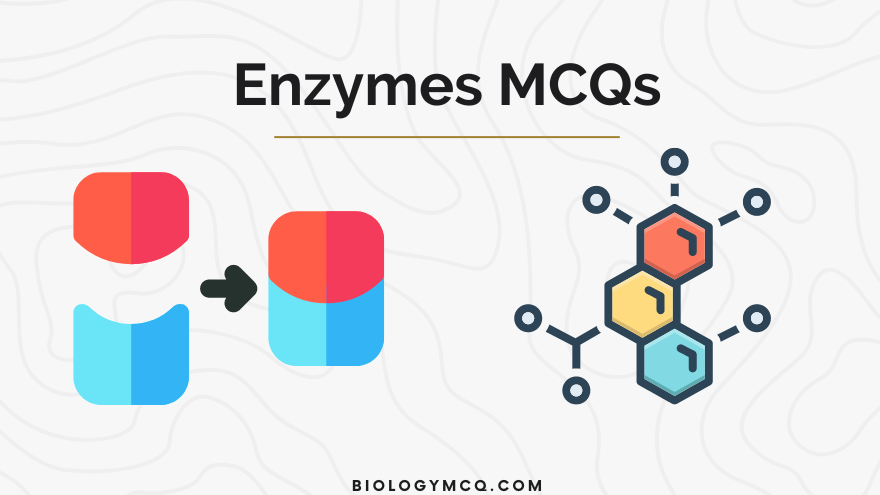Study and Learn with 1000s of Biology MCQs
Enzymes MCQs

Our set of Enzymes multiple-choice questions (MCQs) discuss topics such as enzyme structure, function, regulation, and their roles in metabolic pathways.
So if you’re studying for an exam or seeking to deepen your understanding of biochemistry, these MCQs provide valuable learning opportunities for students and enthusiasts alike.
Let’s start with these MCQs below and expand your knowledge of biochemical processes!
MCQ on Enzymes
Enzymes have pockets, called _, that they use to attach to certain molecules
Cristae
cilia
active sites
substrte
active sites
The molecule an enzyme binds to is called its __
Cristae
cilia
active sites
substrte
substrte
if people don’t get enough vitamin C, the enzymes needed to make collagen can’t function, resulting in a disease called ?
marasmus
scurvy
anemia
haemophilia
scurvy
Enzymes are biological molecules, typically proteins, that act as catalysts in biochemical reactions, speeding up the rate of these reactions without being consumed in the process.
The lack of collagen in people with scurvy causes _
bleeding gums
loss of teeth
abnormal bone development in children
All of these
All of these
The enzyme _ catalyzes the reaction between the reactants urea and water
urease
Amylase
protease
lipase
urease
The enzyme urease catalyzes the reaction between the reactants urea and water, yielding the products _
carbon dioxide
ammonia
Both of these
Methyl alcohol
Both of these
The enzyme urease catalyzes the reaction between the reactants urea and _, yielding the products carbon dioxide and ammonia
Methanol
Benzene
ether
water
water
_ is an enzyme that helps break down lipids
urease
Amylase
protease
lipase
lipase
_ is an enzyme that helps break down lactose.
Urease
lactase
Amylase
protease
lactase
Enzymes work by reducing the amount of _ needed to start a reaction so reactions can occur more easily.
activation energy
Kinetic energy
Potential energy
None of these
activation energy
a process in which a reaction pathway proceeds normally until the final product is produced at too high of a level is called?
feedback inhibition
hydrolysis
glycolysis
osmosis
feedback inhibition
The process of _ prevents cells not only from having to use energy creating excess products but also from having to make room to store the excess products
hydrolysis
Glycolysis
feedback inhibition
Osmosis
feedback inhibition